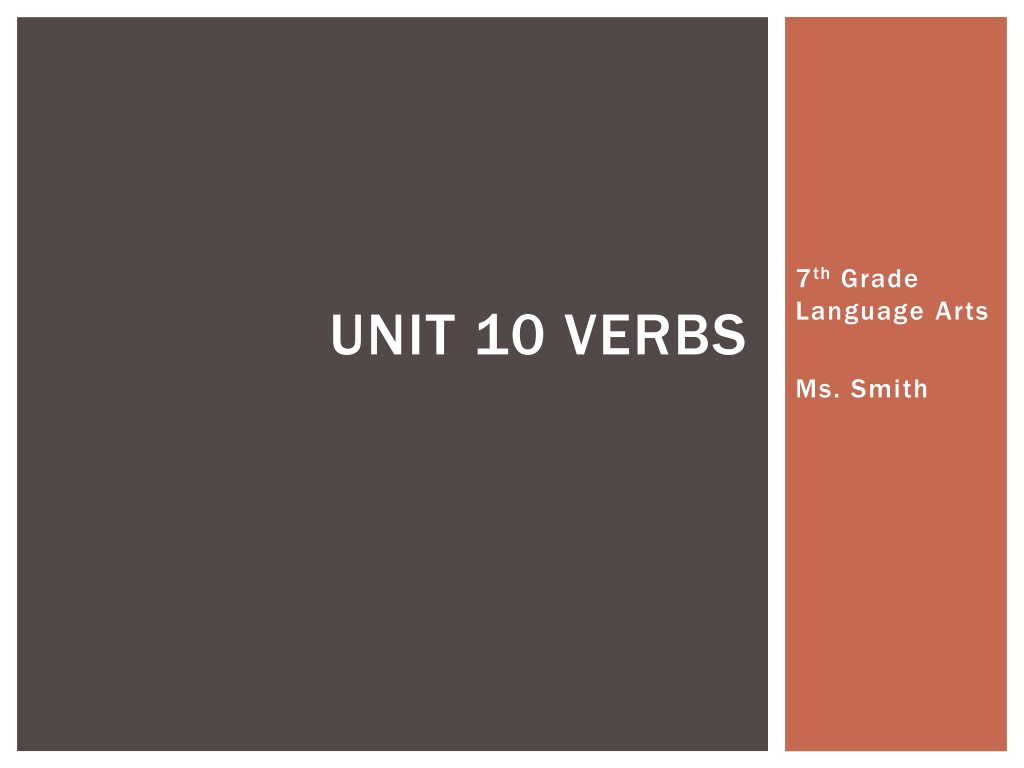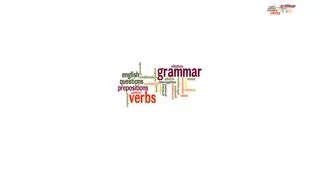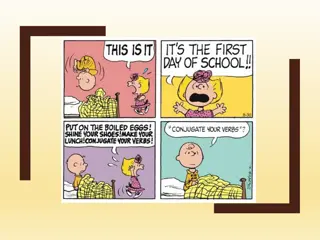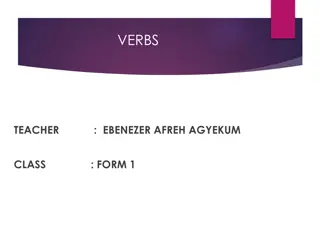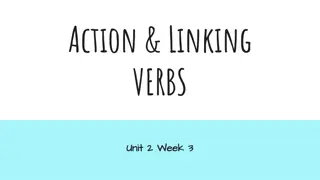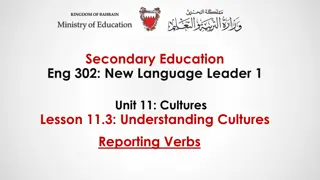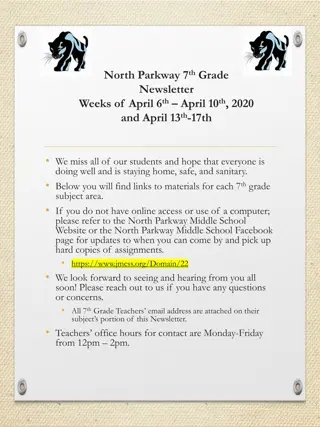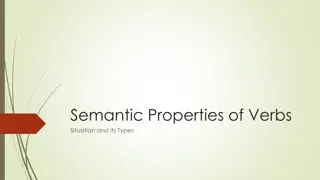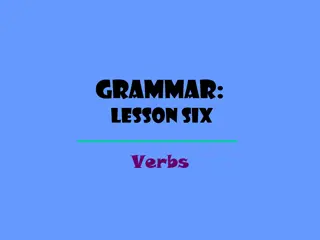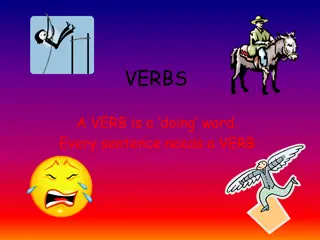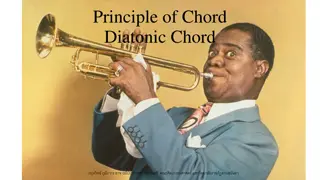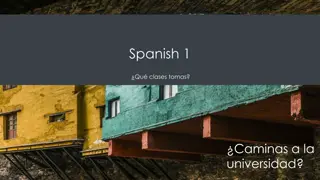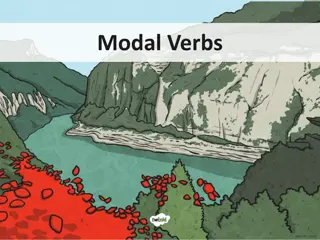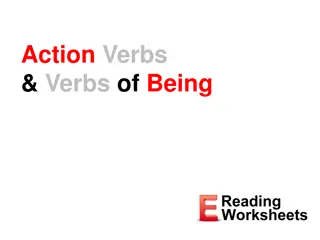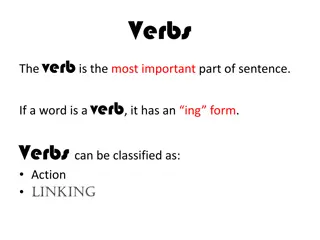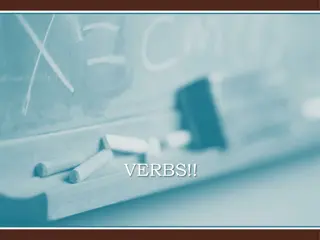Understanding Verbs in 7th Grade Language Arts with Ms. Smith
Learn about action verbs, transitive and intransitive verbs, verbs with indirect objects, linking verbs, predicate verbs, and tenses in Unit 10 with Ms. Smith. Explore examples and explanations to enhance your verb knowledge and language skills.
Download Presentation

Please find below an Image/Link to download the presentation.
The content on the website is provided AS IS for your information and personal use only. It may not be sold, licensed, or shared on other websites without obtaining consent from the author. Download presentation by click this link. If you encounter any issues during the download, it is possible that the publisher has removed the file from their server.
E N D
Presentation Transcript
7thGrade Language Arts UNIT 10 VERBS Ms. Smith
10.1 ACTION VERBS An action verb is a word that names an action. It may contain more than one word. Examples of physical: write, block, tackle, attack, catch, charge. Examples of mental: remember, honor. Sports experts write about athletes.
10.2 TRANSITIVE AND INTRANSITIVE VERBS A direct object receives the action of a verb. It answers the question whom? Or what? after an action verb. Example: The team carried gloves and bats into the stadium. A transitive verb has a direct object. Example: The punter kicks the football. (Kicks what? Football) An intransitive verb does not have a direct object. Example: The team played well. (Does not answer whom? or what? )
10.3 VERBS WITH INDIRECT OBJECTS An indirect object answers the question to whom? or for whom? an action is done. Example: Kobe Bryant shows his teammates new shots. The direct object in this sentence is shots. The indirect object is teammates. Example: The helper gives the players towels. (players is the indirect object). Example: The helper gives towels to the players. (no indirect object).
10.4 LINKING VERBS AND PREDICATE VERBS A linking verb connects the subject of a sentence with a noun or an adjective in the predicate. Example: Travis Hoffman was the manager. (was is a linking verb). Common linking verbs: be, become, seem, appear, look, grow, taste, feel, smell, sound) A predicate noun is a noun that follows a linking verb. It tells what the subject is. Example: Caitlyn is a pitcher. (pitcher is a predicate noun.)
10.4 LINKING VERBS AND PREDICATE WORDS (CONTINUED) A predicate adjective is an adjective (word that describes) that follows a linking verb. It describes the subject by telling what it is like. Example: The pitcher is skillful. (Skillful is a predicate adjective. It describes the pitcher).
10.5 PRESENT, PAST, AND FUTURE TENSES A tense of a verb tells when an action takes place. The present tense of a verb names an action that happens regularly. It can also express a general truth. Singular examples: I race. You race. She races. The past tense of a verb names an action that already happened. Examples: The runner trained hard. I He gained fame as an athlete.
HOMEWORK 5/13/14 Skip 6 pages in your notes. On your next clean page, write: Lesson 10.3 Exercise 5 Page 404 Write the first sentence: The tournament sometimes attracts good athletes. If the sentence contains a direct object, underline it once. If it contains an indirect object underline it twice. The tournament sometimes attracts good athletes. (D.O) The university gave the tournament its support. The university gave the tournament its support. (tournament I.O.; support D.O). HW Page 404 Ex 5 #1-20. Due Wednesday.
